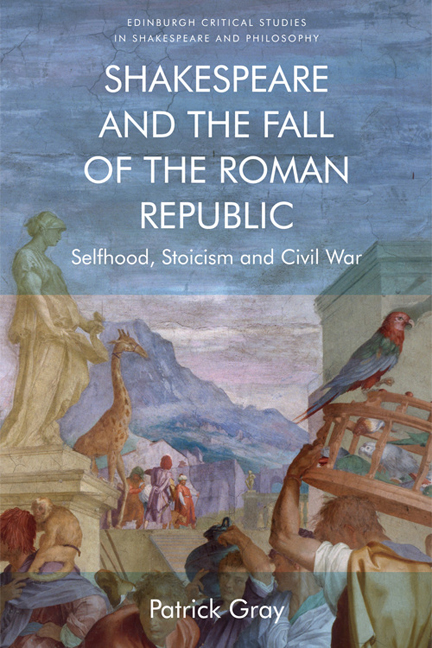4 - ‘A Spacious Mirror’: Interpellation and the Other in Antony and Cleopatra
Summary
In her influential reading of Antony and Cleopatra, Janet Adelman argues that the problem of moral judgement is central to the experience of the tragedy, not just for the characters themselves, but also for the audience. ‘The desire to judge and be judged correctly is one of the dominant passions of the play.’ ‘The dramatic design of Antony and Cleopatra forces us to acknowledge the process of judgment at every turn.’ In keeping with this focus on ethical evaluation, ‘the most characteristic dramatic technique in Antony and Cleopatra is the discussion of one group of characters by another.’ This recurrent ‘framing’ of the action, as if it were a play within a play, draws in the audience and forces us to participate, as well, in the act of judging. ‘For we are, in a sense, the most minor of the characters who stand aside and comment; or at least we as audience are silent extensions of them.’
Anne Barton sees the position of the audience in Antony and Cleopatra in much the same light. ‘Our place of vantage is basically that of Charmian or Enobarbus: people sufficiently close to their social superiors to witness informal and often undignified behavior, without participating in its motive and reflection like the confidantes in Garnier and Jodelle.’ Antony and Cleopatra have a quality of ‘opacity’, a ‘moral ambiguity’, that elicits what Barton calls ‘evaluation’, and Adelman, ‘judgment’, from other characters, as well as the audience. ‘In this tragedy,’ Barton writes, ‘other characters are continually trying to describe Cleopatra and Antony, to fix their essential qualities in words.’ Like Adelman, however, Barton sees this ‘dilemma of judegment’ as interminable, insoluble. And, like Adelman, she cites Cleopatra's description of Antony as akin to a perspective painting, one way a ‘Gorgon’ (2.5.116), the other way a ‘Mars’ (2.5.117), as a paradigmatic symbol. Like Antony here, Antony and Cleopatra, as Barton and Adelman see the play, simultaneously evokes and frustrates the desire for definitive moral judgement. ‘In effect,’ Adelman writes, ‘we are forced to judge and shown the folly of judging at the same time.’
- Type
- Chapter
- Information
- Shakespeare and the Fall of the Roman RepublicSelfhood, Stoicism and Civil War, pp. 220 - 258Publisher: Edinburgh University PressPrint publication year: 2018

